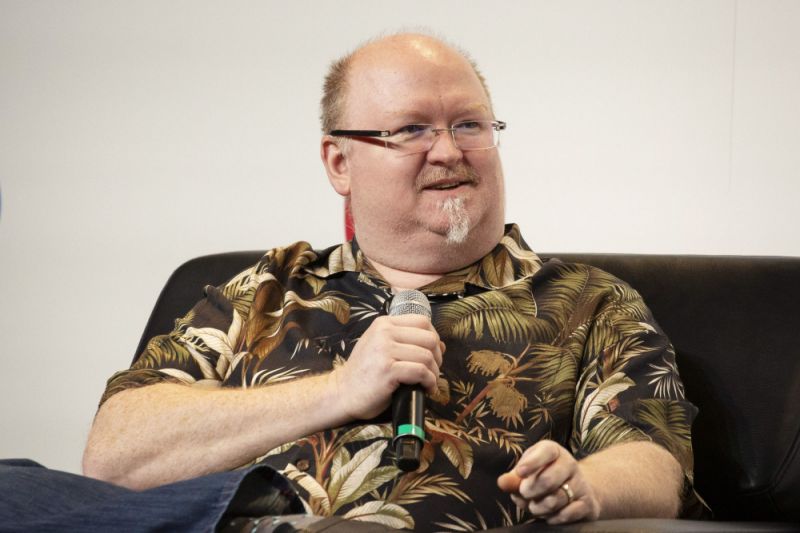(Bloomberg) — When Microsoft Corp. Chief Technology Officer Kevin Scott wanted to examine how artificial intelligence was poised to create yet another economic upheaval in a rural America, he returned to the Virginia countryside where he was born. Instead, he found small businesses already using technology and primed to take advantage of AI — a much more hopeful picture, if only the U.S. could figure out how to boost education and access to technology throughout the working class.
In the months since since Scott finished writing “Reprogramming the American Dream,” which is scheduled for release next week, the Covid-19 pandemic has made the shortcomings he identifies starker and more immediate. The same way it’s hard to build a small business in towns without reliable fast internet access, people can’t work from home without it. In underfunded schools with little computer education, it’s hard to set up distance learning.
“We want to put opportunity and the best possible tools into the hands of as many people as possible,” Scott said in an interview. “I don’t know that it’s going to be some overnight transformation, but we have to bake it into the values that we have and the economic decisions we are all making as consumers, big businesses, partners and policy makers.”
After 16 years working on machine learning, Scott, 48, said he’d developed a typical point of view in the industry that AI would be a disaster for low- and middle-skilled workers and a boon to information and tech workers. Yet in a visit to his hometown of Gladys, Virginia, and its county seat — the evocatively named Rustburg (population 1,431 in the last census) — he found burgeoning small businesses using new technology and a cause for optimism mixed with high rates of poverty and unemployment borne from the demise of local industries like textiles and tobacco.
“I had this ‘a-ha’ moment that these people I’d grown up with were doing work and running businesses that were already using technology in really interesting ways, and the types of tech they were using were exactly the sorts of things that were going to be amenable to improvements with AI,” he said. These people, and not the tech leaders and AI researchers, were going to have a better idea how to use AI for their specific industries and challenges, he said.
Scott is pushing ideas he hopes will boost rural economies and lessen the impact of future disruptions like the current one. Microsoft, his employer, stands to benefit greatly by more use of AI as one of the largest providers of AI tools over the internet. He suggests the U.S. government spend $200 billion, an amount equivalent to the Apollo program that sent the first astronauts to the moon, for “AI in service of the public good.” He calculated the figure using the percentage of GDP spent on the Apollo program in the 1960s. If some of that funding is used to provide better health care for all, it might pay for itself by reducing waste and costs, he said. He also wants the government to come up with ways to provide ongoing education for the skills of the future and to finally fix the lack of rural broadband.
Promoting rural small businesses, like the precision plastic parts plant a high school classmate of Scott’s manages in an former textile mill, will also require buyers for their goods. The current pandemic, which has large companies rethinking their overseas supply chains, particularly in China, may provide opportunities for smaller U.S.-based businesses to prove their worth, Scott said. Companies like Microsoft can help by committing to buy from rural America more often, he said.
While using artificial intelligence to sharpen and improve business practices is essential, Scott said, the technology can’t replace people in many areas.
“We should make sure we are never taking for granted those things humans do uniquely well,” he said.
<p class="canvas-atom canvas-text Mb(1.0em) Mb(0)–sm Mt(0.8em)–sm" type="text" content="For more articles like this, please visit us at bloomberg.com” data-reactid=”50″>For more articles like this, please visit us at bloomberg.com
<p class="canvas-atom canvas-text Mb(1.0em) Mb(0)–sm Mt(0.8em)–sm" type="text" content="Subscribe now to stay ahead with the most trusted business news source.” data-reactid=”51″>Subscribe now to stay ahead with the most trusted business news source.
©2020 Bloomberg L.P.













Add Comment